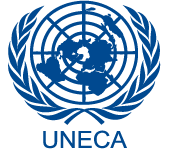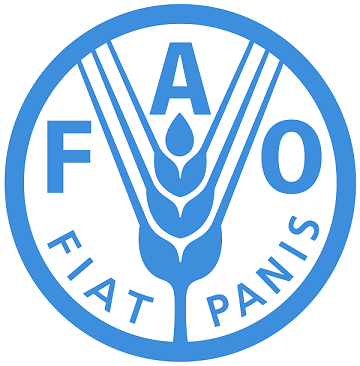Duties and Responsibilities
Background Africa is off track to meet Sustainable Development Goal 2 on Zero Hunger by 2030 and the African 2063 goals related to food security. In 2023, over 298 million Africans, representing 40% of the global total, faced hunger, with COVID-19 pandemic exacerbating the situation. Despite holding 65% of arable land, Africa’s food systems are highly vulnerable to climatic shocks, disproportionately affecting pastoralists and other marginalized groups. There is, therefore, an urgent need to transform African food systems to make them more resilient and inclusive, reduce the impact of climate change, and ensure the inclusion of vulnerable populations, including pastoralists whose livelihoods depend on ecosystems that are extremely vulnerable to climatic shocks. The United Nations Economic Commission for Africa (ECA) is implementing a project on accelerating food system transformation for resilience to climate change in Africa. This project aims to strengthen the capacity of selected African countries to improve the resilience of food systems to climate change and variability, with focus on livestock agri-food systems. It will support countries to identify challenges and opportunities for policy reforms that facilitate harnessing of the livestock value chains; secure access to land and pasture, in environments where land and pasture is often managed under common property regimes, and where conflict over land, water and pasture is common; and enhance evidence-based decision to support land management, early warning and risk assessment for improved adaptation to climatic shocks. Working closely with our long-standing collaborators, including IGAD, AUC, RECs, UN entities, academia/research and non-state actors, the key interventions will include research, policy dialogues, sensitization, and capacity development of policymakers, legislators and technicians to develop supportive policies and regulatory frameworks aimed at enhancing the resilience of food systems, particularly livestock value chains The targeted countries for this project are Kenya, Somalia, and Uganda. These countries are part of the Horn of Africa, a region which is highly vulnerable to climate shocks, such as droughts, floods, disease, and pest outbreaks, which have severe implications for agriculture, the primary livelihood for most of their populations. On the positive side, all three countries have a great opportunity to harness land resources to reduce poverty and transform their economies, with the livestock sector holding great promise but remaining largely undeveloped. This is partly because the agri-food systems in all countries have adopted minimal adaptation mechanisms to mitigate and address the effects of climate change. This is especially so for the livestock sector, which is dominated by pastoralists operating under extremely harsh climatic conditions. The three countries have experienced land and resource-based conflicts and borne grave consequences in this regard, including displacement of communities sometimes for long periods of time, affecting their development. It is no wonder that all these countries are classified as developing lower-middle-income countries, LDCs, or LLDCs. Kenya, Somalia and Uganda face similar challenges yet are in different development stages of addressing the underlying challenges hindering agri-food systems transformation. This provides a great opportunity for developing insights that cater to a wide range of food systems for possible scale-up at regional and continent levels based on experience and lessons learned. Context At the African Union Extraordinary Summit on the Post-Malabo CAADP, held in January 2025 in Kampala, Uganda, African countries adopted the Kampala CAADP Declaration on Building Resilient and Sustainable Agri-food Systems in Africa. The CAADP Action plan (2026 to 2035) highlights six commitments deemed essential to transform and strengthen the agri-food system on the continent. The Declaration represents a commitment to, among other things, intensify sustainable food production, agro-industrialization, and trade. The strategy further prioritizes tripling intra-African trade in agri-food products and inputs and raising the share of locally processed food to 35% of agri-food GDP by 2035. A full adoption of the strategy would be pivotal to accelerating agri-food systems transformation across the continent. It is projected that the adoption of the new agricultural development strategy will boost agri-food output by 45% by 2035, turning Africa food secure within a decade. The livestock value chain presents an immense opportunity to form the basis of agri-food value chain transformation, addressing Africa’s food security and nutrition challenges while promoting diversification and trade. This sector currently faces challenges, including vulnerability to climate change, land tenure insecurity, and conflicts, especially for pastoral systems, which primarily rely on communally managed land and pasture. The challenges are further compounded by poor access to inputs; inadequate access to quality breeds that align with market demand for food and leather, and climate resilience; limited financing and insurance options—especially for drought coverage; and failure to meet sanitary and phytosanitary standards, as well as limited technical capacities. Additionally, a low level of cross-border trade in livestock products and commodities adversely limits investment and agri-food system resilience and transformation. Advancing equitable investments in livestock value chains requires adequate land information and land use plans to guide investment decisions by governments, communities, and private investors. Many governments lack land use plans, mapping of land claims, and a clear understanding of environmental and economic services that underpin production and value chain development. It is no wonder, then, that only 15-20% of large-scale land acquisitions result in the intended goal of enhancing agri-food production to address food security, diversification, and trade. Data, information, knowledge and technical assistance are needed to support key enablers, i.e. the policies, legislations and develop viable programmes that: 1) improve land tenure security and ensure responsible investments that are not only targeted at private sector but are also inclusive of women, pastoralist and other vulnerable groups; 2) integrate the agri-good value chain to enhance access/adoption of quality and resilient breeds and other inputs, technology, equipment and innovations that enhance productivity and build resilience; storage and distribution facilities; and vibrant agro-industrial sector to improve value addition for diversification and trade; 3) improve access to insurance progammes available to producers especially in the livestock sector to cushion them from climatic and other shocks. Taking advantage of the momentum brought by the signing of the AfCFTA, Kenya, Uganda, and Somalia have a platform that can help advance livestock value chains and open the market to the rest of the continent and the world Purpose In this context, the ALPC seeks to engage a consultant to lead the work on land and climate to strengthen decision-making in the target countries and coordinate the overall implementation of the project. This will involve collecting and analyzing geospatial data from satellite imagery and climate models, specifically the Shared Socioeconomic Pathways (SSPs), for foresight analysis to support decision-making in livestock value chains. It will include adapting tools like livestock value chain suitability modules, land use and tenure modules, and climate prediction modules to local contexts. A geoportal will be developed to centralize and visualize this data, equipping policymakers and stakeholders with evidence-based tools to strengthen and sustain livestock systems. The geoportal will generate country profiles on demand to assess risks and identify investment opportunities within livestock value chains. The consultant will also conduct capacity-building workshops to build the capacity of technical officers to effectively use decision support tools and the land and climate information portal. The training will focus on hands-on exercises, equipping them with skills to analyze geospatial data, generate actionable insights, and apply these tools in land management and climate adaptation strategies Tasks and Responsibilities Under the supervision of the Chief, Land and Agricultural Transformation Section, the consultant will conduct the following tasks in Kenya, Uganda and Somalia; i. Provide overall coordination of the project ii. Acquire, process, and manage spatial and non-spatial data from various sources, including satellite imagery, remote sensing, climate models, field surveys, and socio-economic surveys related to land and livestock value chain development. iii. Utilize advanced GIS tools and technologies to generate actionable insights. iv. Identify potential areas and opportunities for private sector investment in livestock value chain by leveraging geospatial data and intelligence. v. Adapt and customize decision support modules on livestock value chain suitability, land use and tenure, and climate prediction vi. Develop and operationalize a decision support tool with functionalities to centralize datasets and tools vii. Generate country profiles highlighting risks, vulnerabilities, and investment opportunities viii. Provide interactive visualization and analytical dashboards for policymakers and stakeholders ix. Design training materials and hands-on exercises tailored to national contexts. x. Facilitate capacity building workshops to technical officers in the line ministries and relevant stakeholders Deliverables/Outputs 1. Inception report 2. Geodatabase of spatial and non-spatial datasets 3. Adapted decision support tools (modules customized to local contexts) 4. Land and climate information portal 5. Workshop Materials (manuals, presentations, exercises) 6. Report on capacity building workshops
Qualifications/special skills
Advanced university degree (Master's or PhD) in Geospatial Science, Land Management, Environmental Sciences, Agriculture, or a related field. Knowledge of geospatial modelling and developing decision support tools is an advantage A minimum of 7 years of experience in geospatial data analysis in land and climate for policy support in the context of the agricultural value chain development, preferably in Africa is required • Proficiency in geospatial software (e.g., ArcGIS, QGIS, ENVI, or similar) and programming languages (Python, R) is required • Strong analytical and problem-solving skills with the ability to apply geospatial tools and methodologies to address complex issues is an advantage • Excellent communication skills and the ability to convey technical information to non-technical stakeholders is required • Familiarity with African agricultural value chains, land tenure systems, and rural development challenges. • A strong commitment to ethical data collection and community engagement.







